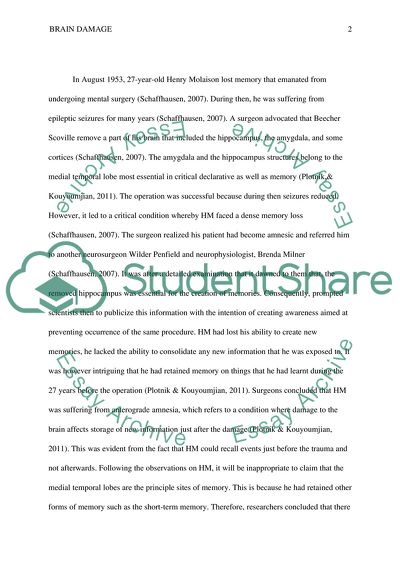Cite this document
(Brain Damage Essay Example | Topics and Well Written Essays - 2250 words, n.d.)
Brain Damage Essay Example | Topics and Well Written Essays - 2250 words. https://studentshare.org/psychology/1815952-brain-damage
Brain Damage Essay Example | Topics and Well Written Essays - 2250 words. https://studentshare.org/psychology/1815952-brain-damage
(Brain Damage Essay Example | Topics and Well Written Essays - 2250 Words)
Brain Damage Essay Example | Topics and Well Written Essays - 2250 Words. https://studentshare.org/psychology/1815952-brain-damage.
Brain Damage Essay Example | Topics and Well Written Essays - 2250 Words. https://studentshare.org/psychology/1815952-brain-damage.
“Brain Damage Essay Example | Topics and Well Written Essays - 2250 Words”. https://studentshare.org/psychology/1815952-brain-damage.


